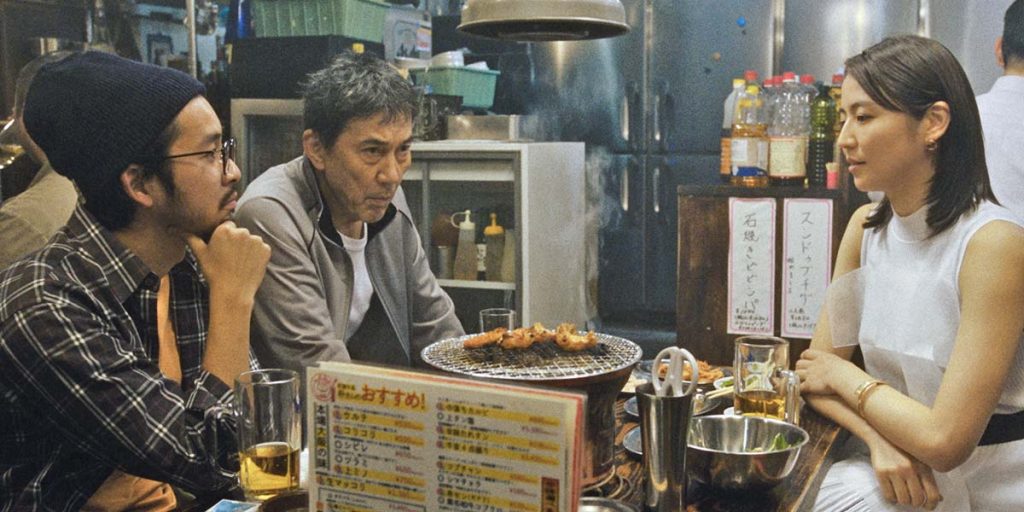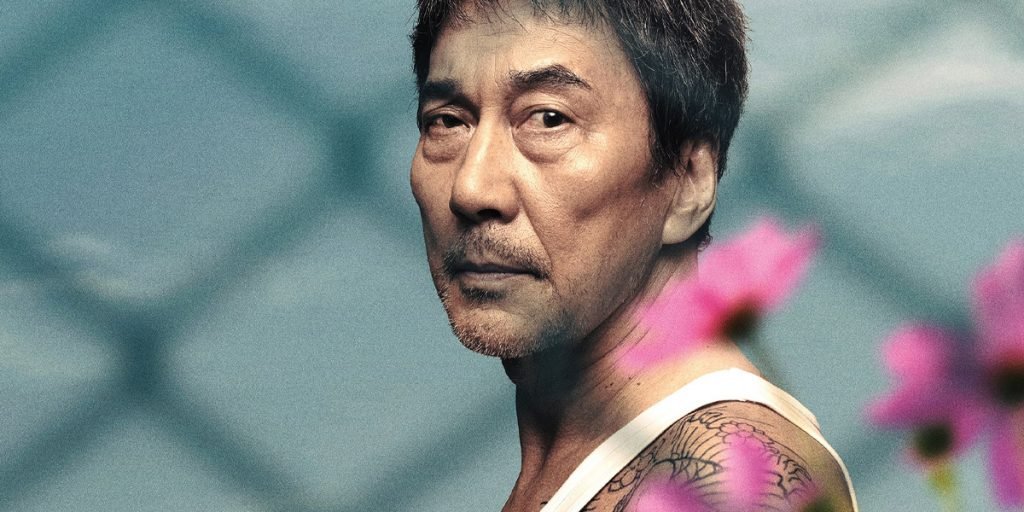The legendary Japanese actor Kōji Yakusho invigorates Miwa Nishikawa’s Under the Open Sky, a sturdy but meandering adaptation of crime writer Ryūzō Saki’s novel “Mibuncho”.
Ex-yakuza Mikami Masao has been released from prison, but finds himself quickly trapped in parole purgatory in Miwa Nishikawa’s sympathetic Under the Open Sky (Subarashiki Sekai). A TV documentarian wants to exploit his story, his parole officer is sympathetic but unhelpful, and his former life of crime hangs over his head. The mundane reality of reintegrating oneself into society is sympathetically charged by star Kōji Yakusho’s excellent performance.
Glancing quickly at Yakusho’s filmography is enough to establish him as a tremendously important figure in both modern Japanese and world cinema, working with directors like Kiyoshi Kurosawa, Hirokazu Kore-eda, and Alejandro Gonzalez-Iñárritu. Both a character actor and star with over 40 years of film work to his name, Yakusho is perfectly cast as Mikami, adding the weight of a lifetime of experience to the grizzled yakuza veteran. In his hands, Mikami is by turns sympathetic and unpredictable, tough and foreboding in one scene, goofy in another. In his hands, Mikami is never a one-note character. He feels more like an active participant in an ongoing story, reacting to new situations vigorously rather than a character who remains trapped entirely in a tragic backstory. Yakusho even enlivens the haunted character with moments of physical levity- mocking his jailers in an early scene by walking in heightened lock-step with them, for example.
The performance is excellent; the script is serviceable. While Under the Open Sky provides a wealth of detail for the slow-moving processes of parole, other aspects of Mikami’s ex-convict life are given a lot less patience. Ensemble characters float somewhat nebulously in his orbit, given little to do other than be at first skeptical, then impressed with their resilient friend. Yakusho’s work is anything other than simple, but too many of his costars suffer from underwriting. The best of the ensemble is Tsunoda, a crime writer (possibly inspired by the author of Under the Open Sky’s source material, Ryūzō Saki) who takes an interest in Mikami as a subject. Played well by Taiga Nakano, Tsunoda is given a little more of an arc than most characters, especially when he and a TV producer begin to disagree on the best way to tell Mikami’s story. His subplot is the most compelling when reading Under the Open Sky as a social drama, trying to find a better path for Mikami to finally exonerate himself than the turgid bureaucratic processes he is offered. Without giving anything away, the climax of the film does too much of a disservice to this undercurrent, putting its thumb a bit too far on the scale.

Maybe Nishikawa’s fealty to the source material is to blame for the film’s shaggier elements. Of her six films, Under the Open Sky is her first adaptation, and her detail-heavy plotting feels like the result of trying to capture too many specific moments of Saki’s book. Having not read the book myself, this is a purely speculative theory, but the film as presented wants to cram in as many incidents as possible, leaving some should-be weightier moments to suffer. I haven’t even mentioned Mikami’s relationship with the mother who abandoned him as a child, because the film doesn’t do nearly enough with what could have been a more complicated dynamic.
The film is sturdy nevertheless, carried at times by Yakusho but generally unfussy in its portrait of its protagonist and modern Japan. Nishikawa mostly knows when to let a scene breathe, so the film’s few hurried moments rankle just a little bit more than one would hope. Still, the pairing of director and star is very well-matched, and Nishikawa and Yakusho lift each other up to make Under the Open Sky a very satisfying encounter with its protagonist.
Under the Open Sky premiered digitally at the 47th Seattle International Film Festival on April 8-18, 2021.

